Want to be seen here?
Connect your company to the marketplace for free.
Time for a display campaign? Ocast has gathered thousands of solutions in one place so you can get started quickly. Fill in the form and start receiving offers for campaign proposals.
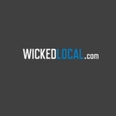
The Wellesley Townsman is a paid weekly, local newspaper in Wellesley, Massachusetts. It is currently owned by GateHouse Media.Debuting in April 1906, it originally was published on Friday afternoons ...

Tech Advisor’s 25-year legacy began in August 1995. The website launched in 1996, and in June 2017 we rebranded as Tech Advisor. Fast-forward to today, and Tech Advisor has become Foundry’s premier gl...

The Berkshire Eagle is an American daily newspaper published in Pittsfield, Massachusetts, and covering all of Berkshire County, as well as four New York communities near Pittsfield. It is considered ...

The Cape Cod Times is a broadsheet daily newspaper serving Barnstable County, Massachusetts, United States, which encompasses 15 towns on Cape Cod with a year-round population of about 230,000. It is ...
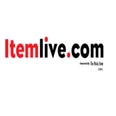
The Daily Item is a six-day morning daily newspaper published in Lynn, Massachusetts, United States. In addition to its home city, The Daily Item covers the Massachusetts North Shore cities and towns ...

The Daily Hampshire Gazette is a six-day morning daily newspaper based in Northampton, Massachusetts, United States, and covering all of Hampshire County, southern towns of Franklin County, and Holyok...

The Daily News of Newburyport is a 6-day-per week daily newspaper that covers Newburyport and its surrounding communities of Amesbury, Salisbury, Newbury, West Newbury, Rowley, Georgetown, Groveland, ...
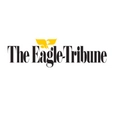
The two-time Pulitzer Prize-winning Eagle-Tribune covers the Merrimack Valley of Massachusetts and southern New Hampshire. With offices based in North Andover, Mass., and Derry, N.H., our core coverag...

The Enterprise is an afternoon daily newspaper published in Brockton, Massachusetts. It is considered a newspaper of record for Brockton and nearby towns in northern Bristol and Plymouth counties, and...

The Gloucester Daily Times is an award-winning six-day morning newspaper based in Gloucester, Mass., that has been serving the communities of Cape Ann — Gloucester, Rockport, Essex, and Manchester-by-...

The smaller of the two main newspapers in Massachusetts' South Coast, The Herald News is a daily newspaper based in Fall River, Massachusetts. Its coverage area includes Fall River and the nearby town...

The MetroWest Daily News is an American daily newspaper published in Framingham, Massachusetts, serving the MetroWest region of suburban Boston. The newspaper is owned by Gannett.The newspaper covers ...

The Milford Daily News is an American daily newspaper covering Milford, Massachusetts, and several nearby towns in Norfolk and Worcester counties. The newspaper is managed and printed by The MetroWest...
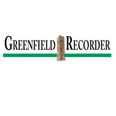
The Greenfield Recorder is an American daily newspaper published Monday through Saturday mornings in Greenfield, Massachusetts, covering all of Franklin County, Massachusetts. It is owned by Newspaper...
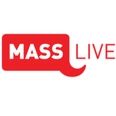
The Republican is a newspaper based in Springfield, Massachusetts covering news in the Greater Springfield area, as well as national news and pieces from Boston, Worcester and northern Connecticut. It...

The Salem News covers 13 communities on the North Shore — Salem, Beverly, Danvers, Peabody, Ipswich, Hamilton, Wenham, Marblehead, Swampscott, Middleton, Topsfield, Boxford and Manchester. We are base...

The Sentinel & Enterprise is a morning daily newspaper published in Fitchburg, Massachusetts, with a satellite news bureau in Leominster, Massachusetts. The newspaper covers local news in Fitchburg, L...
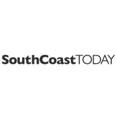
The Standard-Times (and Sunday Standard-Times), based in New Bedford, Massachusetts, is the largest of three daily newspapers covering the South Coast of Massachusetts,[1] along with The Herald News o...

The Sun, also known as The Lowell Sun, is a daily newspaper based in Lowell, Massachusetts, United States, serving towns in Massachusetts around the Greater Lowell area and beyond. As of 2011, its ave...

The Sun Chronicle is a daily newspaper in Attleboro, Massachusetts, United States. Most of its readers are in Attleboro and North Attleborough, Massachusetts, but it also covers nearby Foxborough, Man...
Display advertising, often referred to as banner advertising, involves visual ads placed on various websites, in contrast to text-based search ads that appear in search results on platforms like Google.
While search ads are focused on direct response, display ads aim at building brand awareness through engaging visual content like images or animations. Display advertising also enables retargeting, where ads are redirected to users who have previously visited your website, helping to keep the brand fresh in mind.
With opportunities to measure campaign performance and customize design and target audience, display advertising offers an attractive strategy for brands looking to enhance their online presence and effectively engage their target audiences.
The most effective formats and sizes for display ads vary depending on the platform and target audience, but here are some popular options:
Leaderboard (728x90 px): Positioned at the top of the page, this ad size captures visitors' attention right away.
Medium Rectangle (300x250 px): This size is flexible and can be placed in sidebars or embedded within content.
Large Rectangle (336x280 px): A larger variant of the Medium Rectangle that offers more visible space.
Wide Skyscraper (160x600 px): Often used in sidebars, offering a long, vertical ad space.
Mobile Leaderboard (320x50 px): Optimized for mobile devices and often placed at the top or bottom of the screen.
Consider adhering to industry standards and adapting ad format and size to the specific platform and your target audience. However, the emphasis should be on having well-thought-out content that engages and is relevant to your target audience with clear "Call to Actions" (CTA) to encourage clicks and conversions.
Measuring the effectiveness of your display advertising campaigns is crucial for evaluating the results of your campaign and for fine-tuning future marketing strategies. A first step could be to look over the Click-Through Rate (CTR), which represents the number of clicks your ad receives per view, providing an indication of the ad's engagement level. It is also important to track the conversion rate, which shows how many clicks are converted into desired actions such as sales or leads. Cost Per Conversion is another key indicator that helps you understand the cost-effectiveness of your campaign.
It may also be good to look at the impression rate, that is, how many times the ad has actually reached out and been displayed for brand-building purposes.
One of the major advantages of this type of advertising is its ability for audience targeting, where ads can be directed based on demographics, behavior, and retargeting, enabling a more personalized advertising experience. Moreover, with the use of various analytical tools, it becomes easy to track and measure the campaign's effectiveness by observing data on clicks, conversions, and views, which provides valuable insights.
However, display advertising also has its downsides. Ad blocking is one of the major challenges, where users can choose to block display ads, which in turn reduces the reach and effectiveness of your campaign. Ad fatigue is another downside, where ads that are shown too often can become irritating for the users, leading to decreased engagement and negative brand associations. Despite the ability for audience targeting, audience dilution can be a challenge if precise targeting is not used, which potentially leads to wasted marketing expenses. Additionally, the cost of display advertising can become significant, especially if the campaign is not well optimized to achieve desired results.
The cost of display advertising can vary based on several factors such as website, ad format, and target audience. Besides that, there are different pricing structures one can base on to adjust the cost according to the goal at hand. Below we list different pricing options for display advertising.
CPM (Cost Per Mille or Cost Per Thousand Impressions):
The price for 1000 views of your ad.
Often used for campaigns aimed at increasing brand awareness.
CPC (Cost Per Click):
The price you pay for each click your ad receives.
Used when the goal is to drive traffic to a website or increase interaction.
CPA (Cost Per Acquisition or Cost Per Action):
The price for each specific action or execution, such as a purchase or lead generation, that arises via your ad.
Used when the goal is conversions rather than just views or clicks.
CPL (Cost Per Lead):
The price for each lead generated through your ad.
Used in B2B marketing or for products/services with longer sales cycles.
CPV (Cost Per View):
The price for each viewing of a video ad.
Often used for video-based advertising campaigns.
Each pricing structure suits different goals and campaign types, and choosing the right pricing structure can help maximize the ROI for your display campaign.
Connect your company to the marketplace for free.
No commitments.